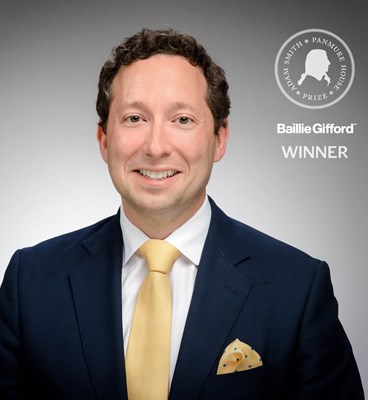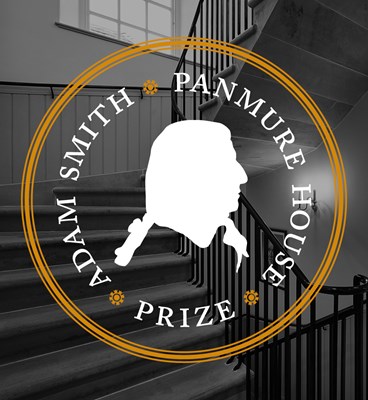Biography
Tima Bansal is a Professor of Sustainability and Strategy at the Ivey Business School, with honorary doctorates from Universität Hamburg, Université de Montréal, and Vrije Universiteit Amsterdam, and affiliations at the University of Cambridge and Monash University. She founded Innovation North, the Network for Business Sustainability, and Ivey’s Centre for Building Sustainable Value. She chairs the Board of the United Nations Principles for Responsible Education and the Impact Committee for the venture capital firm Shift4Good. A Tier 1 Canada Research Chair in Business Sustainability, she is also a Fellow of the Royal Society of Canada and the Academy of Management, and has received awards such as the Hellmuth Prize and the Aspen Institute Faculty Pioneer Award. Her research focuses on business strategy and sustainability, with publications in leading journals, two co-edited books, and a column in Forbes.com, and has been featured in outlets including The Globe and Mail, The Wall Street Journal, and The Guardian. She has delivered the 2025 Clarendon Lectures at the University of Oxford, served as an editor for the Academy of Management Journal, and secured more than $13M in funding for sustainability research.
Find out more about Professor Bansal's work
Interview with Professor Bansal
How does it feel to be shortlisted for the Panmure House Prize?
I'm truly honored to be shortlisted for the Panmure House Prize. Among all the prizes available, this one holds special meaning for me because it recognizes exactly what I've dedicated my career to: innovation that creates long-term prosperity for all.
What makes this recognition particularly meaningful is its connection to Adam Smith. I've always been drawn to his understanding that real innovation comes from rigorous interdisciplinary collaboration aimed at solving society's problems, not from isolated self-interest. His belief that meaningful breakthroughs benefit generations, not just immediate needs, has been a guiding principle throughout my work.
My research investigates how systems-oriented innovation can tackle today’s wicked problems. To ensure the work is both rigorous and relevant, I co-create knowledge with interdisciplinary researchers and senior executives. This approach has generated deep, organization-based insights that are reaching audiences through high-quality research journals like the Academy of Management Journal (e.g., 2020) and mainstream publications like Harvard Business Review (e.g., 2025).
Being shortlisted for this Prize makes me feel that both my research content and my collaborative approach are making the impact I've always hoped for. It's an endorsement of the idea that academic rigor and practical relevance don't just coexist, but strengthen each other.
How did you find out about the Panmure House Prize and what was it that attracted you to apply?
My university’s research office alerted me to the Panmure House Prize. As soon as I read the criteria, I was immediately intrigued by the fit. I valued the Prize’s focus on academic rigour, practical innovation, and long-term prosperity.
I was also delighted to see that Rachelle Sampson was the inaugural Panmure House Prize winner. I had the privilege of meeting her for the first time in 2023. I have long admired her work, which showed that U.S. public markets had become increasingly short-term between 1980 and 2013, which mirrors my work on the organizational and societal costs of short-termism. We also discussed parallels between her Chesapeake Project and my work at Innovation North, both of which foster interdisciplinary collaboration and a connection to practice — an approach essential for meaningful change.
The Panmure House Prize honours bridging work, between past and future, and between rigorous research and practical application. The best innovation happens at these intersections, where insights about intergenerational impacts are tested and refined in real-world contexts.
Such a prize is rare, and I applaud Heriot-Watt University for its vision in creating it.
Could you give us a brief introduction to your research for people who might not be from an academic background, could you explain what is the problem you are trying to solve?
My research tackles a fundamental problem: businesses today feel forced to choose between short-term survival and long-term prosperity. This false choice is damaging companies, communities, and our entire economic system.
The Academic Foundation
Prior scholarship has shown that the short-term focus of business undermines the long-term investments needed for organizational and community resilience. My quantitative studies identify the perils of short-termism, including reduced investment in innovation and corporate social responsibility and lower long-term performance.
Yet, most researchers and executives assume that the antidote to short-termism is ‘long-termism’. Yet, this advice creates its own problems. Companies focused solely on the long-term goals can miss urgent threats and immediate opportunities. These problems are particularly evident today with massive shifts in public policy, technologies, and environmental threats.
The real solution isn't choosing between time frames—it's learning to operate on both simultaneously. Using systems thinking, I theorize and research the embeddedness of organizations in broader systems, such as economies, ecologies, and societies. Rather than an orientation to management focused on prediction, planning and control, I focus on adaptation to make systems more resilient and sustainable. My quantitative and qualitative research identifies specific mechanisms that make it possible for organizations to manage both the short and long term, such as executive compensation structures, stakeholder engagement practices, and innovation processes.
Real-World Application
I also seek to speak to real world practice, in order to gain greater insights into the issues and contexts, but also to influence management outcomes. Working with a 12-member research team and 30 major Canadian organizations, we've co-created a tool called the "Compass", which integrates systems thinking with design thinking to guide innovation decisions.
We've applied the Compass to solve real problems: helping an insurance company develop strategies for climate-resilient housing as weather-related damage costs skyrocket and working with a standards organization to create new guidelines that will reduce the built environment's massive carbon footprint—buildings account for roughly 40% of global emissions.
Both projects have shifted how these organizations operate and have generated new research insights, creating a virtuous cycle between practical impact and academic knowledge.
Measurable Impact
The Stanford/Elsevier Top 2% Scientists List ranks me #34 out of 57,191 economics and management scholars, reflecting both the citation impact of my academic work and its relevance to pressing real-world challenges.
How do you conduct your research?
Some of my research follows traditional academic methods, building insights through rigorous data analysis. However, where I find the most energy is through engaged scholarship, where I work closely with corporations to deeply understand the phenomena. I collect data from archival sources, interviews, and observations.
My methodological approach integrates ethnographic research with action research. The invisible and dynamic elements of a system only by observing phenomena; we must also probe the system to understand and anticipate possible futures. This means moving beyond building static models — whether regression analyses or systems maps — to creating processes that enable continuous learning. It is important for us to maintain our role as researchers when working closely with practitioners. The Compass is one such process. It equips organizations to act, experiment, and learn iteratively, revealing system dynamics in real time.
A metaphor that captures the difference between traditional methodologies and mine can be reflected by furniture making. While craftspeople can build furniture with detailed schema, they are better served by also being given the tools. The schema and the tools are critical not only for understanding, but also for building better, more resilient, furniture.
How do you envision your work will advance long-term thinking and innovation in your field and beyond?
In terms of academic knowledge in my field, I seek to advance systems thinking in management studies. Systems thinking developed deeply until the 1990s but has since been largely dormant. Dominant cause-effect reductionist thinking has come to dominate the field, which has also contributed to the focus on firm-level profits and short-term thinking.
A systems approach to management scholarship has the potential to show both the merits of and the processes by which firms can act in both the short and long term (and at both the local and global levels). Building on the three Clarendon Lectures I gave at the University of Oxford in 2025 on systems thinking, I am working on several research projects that will advance this field. For example, I have a paper forthcoming that shows the negative relationship between organizational speed and Corporate Social Responsibility. I am also developing the concept of shadow capital to show how companies can manage the short and long term simultaneously.
In terms of practical impact, I will continue to develop the Compass through more use cases. Further, I will continue to reach executive audiences through my column in Forbes.com.
Finally, in terms of the student audience, I am building curriculum that makes systems thinking accessible to students, partly through real challenges. Along with my colleagues, we host a Canada-wide corporate challenge that sensitizes students to innovating for systems. Further, the Compass is being applied at business schools worldwide, including American University, University College London, and VU Amsterdam.
What are you working on next?
I have three projects that are both new and energizing. First, I am working with colleagues at the University of Oxford and seven companies that seek to change systems with the Compass. These companies include Natura, Patagonia, and Tony’s Chocolonely. These companies are at the forefront of changing systems for long-term prosperity, which suggests that there will be mutual learnings.
Second, I am seeking to make the Compass more interactive and dynamic through a web-based application. Executives and students worldwide will be able to engage actively with the tool, making the learning and its application more interesting and accessible. Further, we are seeking to embed the research into the ‘learn more’ part of the Compass, so it is not simply an interactive app, but also a learning tool that shows the rigor.
Third, my research team is seeking to validate a measure of 'corporate systems thinking' based on language used. In building this measure, we will have a better sense of when interventions shape organizational practices (e.g., training programs, executive compensation programs) are changing the way that corporations think systemically.





